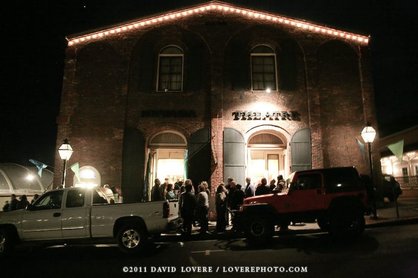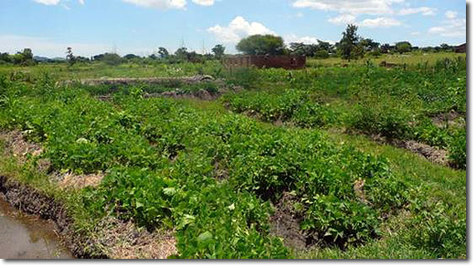
I went back to Wild & Scenic today as a spectator and had another one of those moments. I chose one of the seven venues and arrived just as the film, From the Mara Soil, was starting. I felt my way through the dark hall to a vacant sit against the back wall. The film's message quickly became clear, "sustainable food systems are possible anywhere."
Using subtitles to translate his heavily-accented English, the native dread-locked, Tanzanian spoke directly to the camera and said, "In Tanzania, we don't have a dictator, we don't have war. We just have poverty!" With conviction, he continued, "we must change the way poor people live."

With the help of Global Rescue Alliance, small villages are evaluating everything they do through a new lens...solar ovens are replacing indoor, open-fires for cooking; and wells are finding the rain from the rainy season water trapped in bedrock near the ground surface. Instead of feeling like victims on a hot continent, they are finding ways to grow and cook food by harnessing the the sun's energy and the water delivered once a year..
Every growing region comes with its own host of constraints, it is a matter of working within those constraints to figure out how to stabilize a community's food security. In Tanzania, it requires working with the sun not against it. In the mountains, it requires working with greenhouses, low tunnels and cold frames to extend the season or better yet, grow all year long.
Tanzania, however, is acting out of necessity and survival. In America, we just go to the supermarket. Our survival is not as visceral or palpable. Any vegetable we want is available anytime we want it throughout the year. Western cultures have little incentive to change because we are disconnected from the repercussions of our broken food system. Ironically, developing countries could be more sustainable if they so chose because they can adapt faster to sustainable farming methods and be rewarded immediately with better health, improved lifestyle and a more resilient community.
American communities, however, don't have to be victims of their inequitable food system. They too can be empowered to take control and address their own food security needs and build a stronger local economy in the process. It starts with community!

 RSS Feed
RSS Feed
